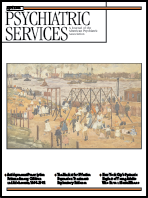With Appetites: Why Women Want, Caroline Knapp aims to make visible the often elusive and misunderstood relationships between eating disorders, consumerism, and female sexuality in American culture. Instead of viewing bulimia, anorexia, materialism, and sexual dysfunction as disparate phenomena among females, Knapp methodically and artfully characterizes them all as disordered appetites. The process of balancing and satisfying these appetites, she argues, is rooted in claiming autonomous, unembarrassed desire. Tapping into this well of unashamed desire was, it seems, Knapp's life work. (Knapp died in 2002 of complications from lung cancer at the age of 42.)
In this book, Knapp achieved her objective by exploring the rhetoric and consciousness of self-loathing of the female body, the ways in which self-contempt and gender roles are passed on through mother-daughter relationships, and the accomplishments and shortcomings of the feminist movement, particularly in the area of female sexuality.
My biggest criticism of Appetites is that it is based on the experience of only one woman in America, yet Knapp often draws very broad conclusions about the female experience. The strength of Knapp's theory often lies in the fact that it is so viscerally based in her own personal experience. However, when the author fails to recognize the limitations of her own singular experience, she alienates readers. Specifically, she uses heterosexist language and undervalues father-daughter relationships.
In her discussion of female sexuality, Knapp refers only to boyfriends and husbands, never once using inclusive language, such as "life partner" or "girlfriend." To me this diction doesn't just feel like an absence of "political correctness" but also seems to uncomplicate or belittle the nuances of women's sexuality. Furthermore, Knapp's emphasis on mother-daughter relationships depicts these relationships as the sole avenue of gender-role education. Completely absent is any analysis of a father's influence on a daughter's sense of personhood. In my own experience, the way my father claims and accepts his role in our family has been just as powerful an image for me as the way my mother does the same.
In her conclusion, Knapp cynically characterizes true balance and satisfaction as only fleeting and momentary sensations in life. That's a pretty grim way to view living in a female body, one I can't relate to at all.
Currently, I am on medical leave from college because of a significant injury to my upper body. The process of rebuilding basic skills—learning how to feed myself or to write again without pain—has profoundly shaped the way I value, love, and think about my body in the world. I inhabit this skin with gratitude and awe, in ways that don't feel fleeting and momentary, but cyclical and deep. Knapp's theory does not make allowances for women whose sense of balanced desires and health operate with our culture's systems of aesthetics and gender in different ways than hers.
In sum, Appetites would be an excellent support reference for an individual who is overwhelmed by anorexia or materialism. The first two chapters, in particular, have the feel of an anthem with the frequent and loud chorus that articulates in many different ways the complicated, profoundly difficult, and beautiful life work of balancing appetites in the female body. Individuals whose experience is not largely in line with that of the author's would benefit from skimming the first two chapters and concentrating on chapter 5, which is about the feminist movement and sexuality, areas in which Knapp's most original work lies.

